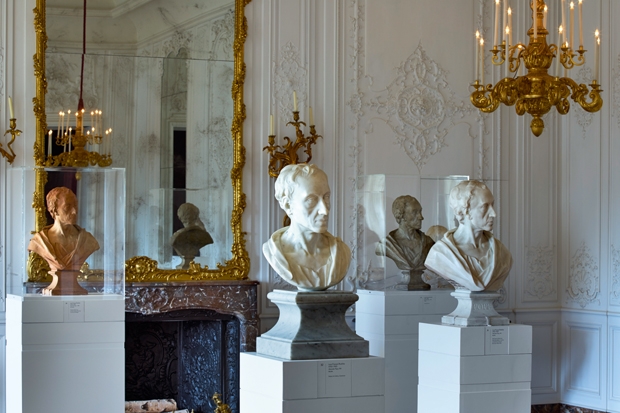‘The Picture of the Prime Minister hangs above the Chimney of his own Closet, but I have seen that of Mr Pope in twenty Noblemen’s Houses,’ wrote Voltaire in 1733.
Alexander Pope’s start in life was not promising. A crippled hunchback, suffering chronic ill-health, he was, as a Catholic, excluded from Court, allowed to live no closer to Westminster than Chiswick. His ‘Rape of the Lock’, a mock epic satirically inflating a ludicrously minor incident in polite society, became the first bestseller after the 1710 Copyright Act, but brought him a mere £22.15s.
Yet the poet who, according to Samuel Johnson, ‘never drank tea without a stratagem’, knew how to exploit his work’s succès de scandale. The infinitely better deal he extracted from his publisher for subsequent translations of Homer’s Iliad and Odyssey made him rich. And through his canny manipulation of his own image, he turned himself into Britain’s first celebrity author.

Get Britain's best politics newsletters
Register to get The Spectator's insight and opinion straight to your inbox. You can then read two free articles each week.
Already a subscriber? Log in







Comments
Join the debate for just £1 a month
Be part of the conversation with other Spectator readers by getting your first three months for £3.
UNLOCK ACCESS Just £1 a monthAlready a subscriber? Log in